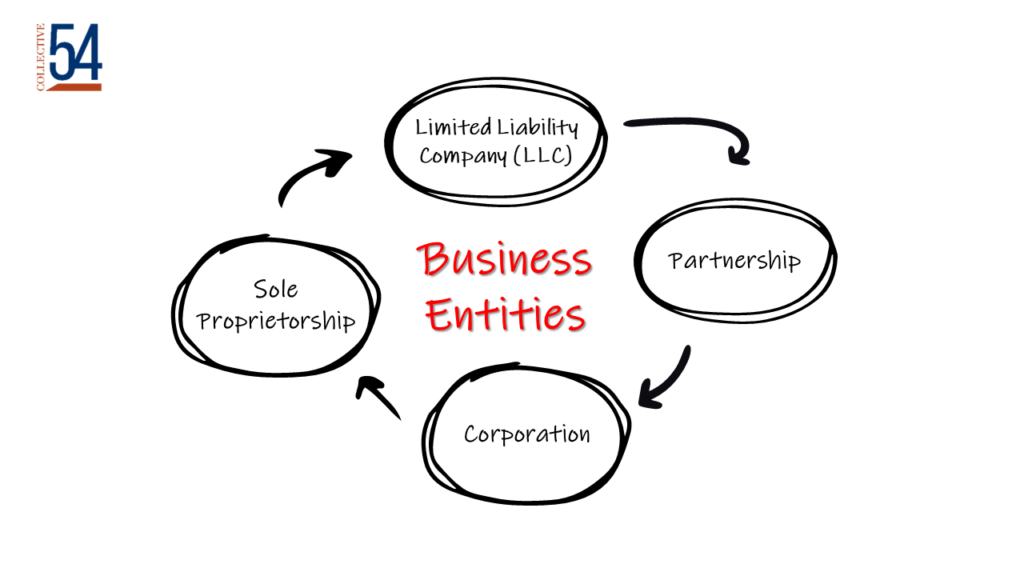Choosing the Right Business Entity for Your Boutique Professional Service Firm

Choosing the Right Business Entity for Your Boutique Professional Service Firm
Starting a boutique professional service firm comes with the excitement of delivering exceptional value to clients. However, one critical step founders must navigate is determining the best business entity for their venture. This choice affects aspects ranging from liability to taxes. Here’s an overview of the different types of business entities and their pros and cons.
- Sole Proprietorship
Pros:
- Simplicity: No need for formal registration, reducing paperwork.
- Direct Control: Sole owners make all the decisions without outside interference.
- Pass-through Taxation: Income and expenses are reported on the owner’s personal tax return.
Cons:
- Unlimited Liability: Personal assets can be at risk if the business incurs debt or faces legal issues.
- Difficulty in Raising Capital: It might be challenging to attract investors.
- Limited Growth Potential: Can be restricted by the capacity of the sole owner.
For members of Collective 54, a sole proprietorship is not recommended. This business entity is better suited for single shingle freelancers not concerned with building a firm.
- Corporation (S Corporation or C Corporation)
Pros:
- Limited Liability: Shareholders are typically not personally liable for business debts.
- Growth Potential: Ability to issue stock can attract investors.
- Perpetual Existence: Corporations can continue beyond the life of its founders.
Cons:
- Complex Formation: Requires more paperwork and expenses.
- Double Taxation (C Corp): Profits can be taxed at both the corporate and individual level.
- Ownership Restrictions (S Corp): Limit on number of shareholders and they must be U.S. citizens or residents.
This type of business entity is not recommended for Collective 54 members. The reason this is discouraged is founders of boutique professional service firms do not need to raise capital. Professional service firms are capital lite businesses and are most often bootstrapped. Given the primary benefit of a corporation is that it allows for capital raising, which is not needed in pro serv, this choice should be avoided. Unfortunately, this business entity is often mistakenly chosen by first time founders of professional service firms. This mistake is made because many boutique pro serv founders come from product companies and this entity type is used often in that situation.
- Partnership (General Partnership, Limited Partnership, Limited Liability Partnership)
Pros:
- Multiple Owners: Enables pooling of resources and expertise.
- Pass-through Taxation: Profits and losses pass directly to the partners’ individual tax returns.
- Flexibility: Fewer regulations compared to corporations.
Cons:
- Unlimited Liability (General Partnership): Each partner can be personally liable for the firm’s obligations.
- Limited Liability with Compromises: In limited partnerships, limited partners have limited liability but can’t engage in management decisions.
- Potential for Conflict: Multiple partners can lead to disagreements.
This structure works well for some Collective 54 members. It is best suited for firms started by co-founders/partners. The reason this works well for some is because partnerships are funded by the partners. A word of caution: firms structured as partnerships need well written partnership agreements.
- Limited Liability Company (LLC)
Pros:
- Limited Liability: Members aren’t typically personally liable for the company’s debts.
- Tax Flexibility: Can choose to be taxed as a sole proprietor, partnership, S Corp, or C Corp.
- Operational Flexibility: Fewer restrictions on management structure.
Cons:
- Complex Formation: More paperwork than a sole proprietorship.
- State Variances: LLC regulations can differ from state to state.
- Limited Life: Some states dictate that an LLC must specify a dissolution date.
This is the most used business entity within the Collective 54 membership, and the broader professional services industry. The pros are well suited for founders of small service firms and the cons are minor. A word of caution: firms structured as LLC would be wise to have well written operating agreements (similar to partnership agreements), and will need to file articles of formation.
Decision-Making Tool
Here’s a simplified decision-making tool to help:
1. How many founders or partners will the firm have?
- One: Consider Sole Proprietorship or LLC.
- Multiple: Look into Partnerships, Corporations, or LLCs.
2. Is limiting personal liability a top priority?
- Yes: Focus on Corporations or LLCs.
- No: Consider General Partnerships or Sole Proprietorship.
3. What’s your preference concerning taxation?
- Avoid double taxation: S Corp, Partnerships, or LLC.
- Okay with potential double taxation for other benefits: C Corp.
4. Do you intend to raise significant capital in the future?
- Yes: Consider C Corporation.
- No: Any entity might suffice depending on other priorities.
5. How much flexibility do you desire in management and operations?
- High Flexibility: LLC or Partnership.
- Structured Governance: Corporation.
After considering the above, it’s advisable to consult with a business attorney and an accountant to discuss specifics. They can provide insights tailored to your firm’s unique circumstances, ensuring you make the most informed choice. Here are a few Collective 54 members who can help you with this:
In conclusion, choosing a business entity is foundational to your firm’s future. While all entities offer distinct advantages, understanding the needs and long-term goals of your firm will guide your decision-making. With the right choice, you can create a solid foundation for your boutique professional service firm’s success.
